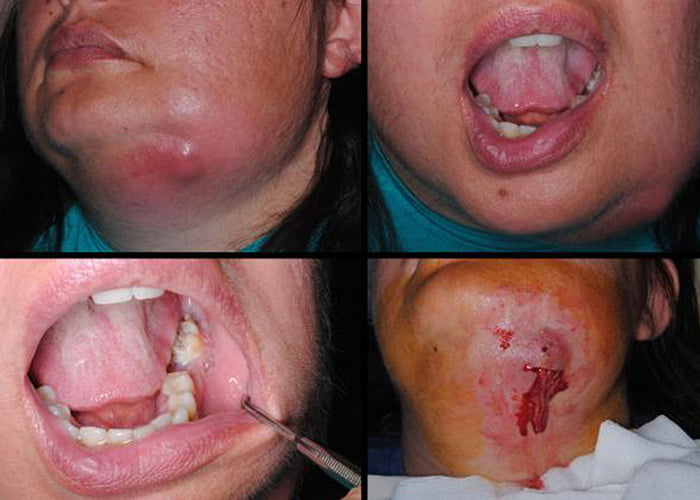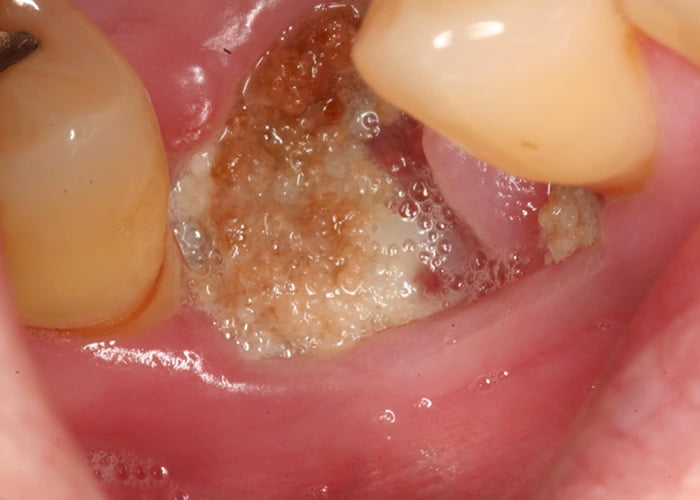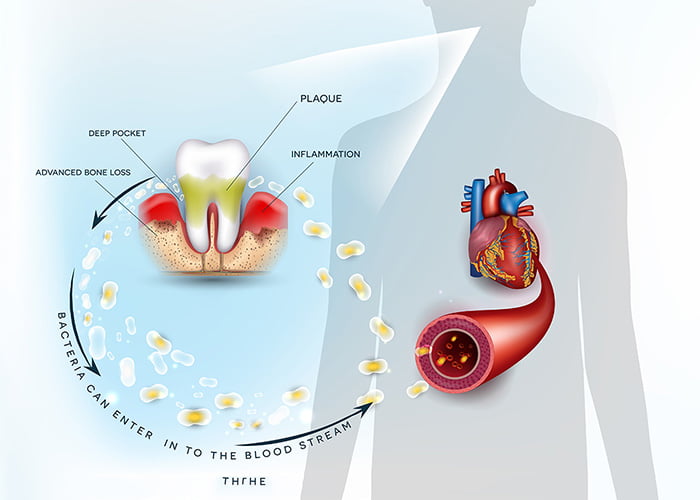The removal of a tooth or teeth from a dental socket is known as a tooth extraction. There are several signs that someone might need to have their teeth extracted. Even though the majority of dentists try to preserve the natural tooth whenever feasible, there are some situations when root canal therapy may not be an option, such as when dental caries have already reached the tooth pulp, which houses nerves and blood vessels (or other dental treatments).
Undoubtedly, extractions may be necessary due to tooth decay, infection, and crowding. One or two teeth may need to be extracted to accommodate the new alignment for people who wear braces. Additionally, compromised teeth may need to be removed to preserve oral health in patients undergoing chemotherapy or getting ready for an organ transplant. Some people don’t have enough room for their wisdom teeth. They can feel discomfort from a wisdom tooth that needs to be extracted. The dentist will decide whether the patient needs a simple extraction or a surgical extraction. Both procedures can be done by a dentist or an oral surgeon. There may be some complications with tooth extraction, you can read the article below for more details.
Possible Complications Following a Tooth Extraction
Although there are almost no serious complications with tooth extraction, there are still a few that you should be aware of. You won’t have to stress too much about your oral health if you can manage it.
Bleeding
A certain amount of bleeding is typical after surgery. Minor bleeding, leaking, or redness in the saliva are common occurrences. Localized bone or soft tissue bleeding may cause post-extraction hemorrhage. Because of the trauma from the extraction, soft tissue hemorrhage that damages blood vessels can happen (arterial, venous, or capillary). Either the core veins or the nutrient canals might result in osseous or bone hemorrhage.
Swelling and inflammation
It is normal for swelling to occur after tooth extraction. It is a typical bodily reaction and a process of self-healing. A simple tooth extraction will result in just a little swelling, while a difficult tooth extraction, such as the removal of numerous teeth or an impacted wisdom tooth, may result in severe swelling.
Usually, the mouth, cheeks, eyes, and sides of the face may expand in a patient. The swelling won’t be apparent until the day following surgery.
It might be beneficial to get in touch with your dentist if the inflammation and swelling at the extraction site persist. In some circumstances, there is a chance of infection. The signs include a high body temperature, a yellow or white discharge from the extraction site, as well as ongoing discomfort and swelling.

Pain
You will experience pain when the anesthetic (numbing medication) wears off, especially where the extracted tooth was.
Complex operations might cause pain that lasts longer and needs to be periodically treated with analgesics. The patient should make an appointment with the dentist to have a pathologic condition examined if the pain continues or gets worse.
Read more: Wisdom tooth extraction pain
Home Management of Complications
You can reduce the aforementioned difficulties with some of the home remedies listed below. Following a tooth extraction, you should seek immediate medical attention if you experience extreme pain or any other problems.
In cases of excessive bleeding
A gauze pad can be applied to the area and bit hard for 30 minutes to stop excessive bleeding. First, rinse or wipe away any previous blood clots from your lips. Repeat as necessary. Bite down on a cold tea bag for ten to fifteen minutes if the bleeding doesn’t stop; the tannic acid in the tea bag helps to form a clot by constricting blood vessels. Keep your composure, sit up straight, and avoid excessive activities to stop more bleeding. For more information, speak with your doctor if the bleeding does not stop.
For swelling & dry socket
For the first twenty-four hours after a tooth extraction, place ice packs on your face, where the procedure was done, for fifteen minutes at a time. After that, heat in the form of warm washcloths can be used to control pain.
The most effective treatment for discomfort brought on by dry sockets is probably heat. However, a cold may make it easier to calm your nerves. Try them all out to see which one suits you the best. Never use hot water; only use warm. Press it against the sore cheek.
You can benefit from two things when you rinse your mouth with salt water. The rinse could help you get rid of food particles stuck between your teeth. Additionally, salt can aid in the treatment of any infection by lowering inflammation because it is a natural disinfectant. Warm water and a teaspoon of salt are used to gargle.
Read more: When Do We Need Emergency Tooth Extraction?

Alleviate pain
The dentist will recommend painkillers if necessary to reduce the discomfort. To avoid allergic reactions or medical difficulties, it is important to mention any allergies, drugs, or health concerns to the doctor.
For extreme pain, take the prescription medications as instructed. The painkillers your doctor prescribed for you will make you sleepy. Avoid drinking alcohol and refrain from operating machinery while taking this drug.
When Should You Call Your Doctor?
Once the anesthesia wears off, it’s normal to feel some discomfort. For the first twenty-four hours following a tooth extraction, you should also prepare for considerable swelling and lingering bleeding. However, you should call your dentist if the pain or bleeding lasts longer than four hours after your tooth has been extracted.
You need to call the dental office right away if you notice any severe issues. Following tooth extraction, the following serious concerns are listed:
- Bleeding that continues for more than twelve hours
- A serious infection may be indicated by a high temperature and chills.
- Nausea or diarrhea
- Feeling sick
- Chest pain
- Tooth fracture
- Breathing difficulty
- Persistence of the surgical site’s redness, edema, or pus.
- Constant numbness
- Damage to teeth close to the extraction site.
- When a tooth at the upper rear of the mouth needs to be pulled, a sinus hole occurs.
FAQs About Tooth extractions
You should have a look at some frequently asked questions so that you may carefully prepare before extracting a tooth.
Are antibiotics after tooth extraction necessary?
Each patient carries oral bacteria that, if it enters the bloodstream, can result in an illness. Antibiotics are only given after dental surgery if an infection results, as the majority of healthy people are safeguarded against such an incidence by their immune systems. On the other hand, failing to give antibiotics after tooth extraction leads to an infection.
Medications that affect tooth extraction
Your dentist will provide a local anesthetic injection to the tooth extraction point before extracting the tooth. In some more complicated circumstances, your dentist could resort to a strong general anesthetic. You won’t experience any discomfort during the tooth extraction surgery thanks to this, which will also put you to sleep.
Although you should also not feel any pain, you might feel some pressure on the tooth. They might also hear the grinding and cracking of bones or teeth. Many people find the encounter upsetting.
They should let the dentist or oral surgeon know right away if they are in pain. However, take care not to mistake strong pressure for pain in order to avoid unnecessarily causing anesthesia.
A blood clot commonly forms in the tooth socket after extraction. In order to stop the bleeding, the dentist will place a gauze pad in the socket and instruct you to bite down on it. A few stitches, which often dissolve on their own, may be used by the dentist to close the gum lines around the extraction site.
Considering that most people won’t need to have their teeth extracted, tooth extraction is probably nothing new. If your tooth becomes infected or decays, for example, you may need to have it extracted. Complications with tooth extraction might occasionally include bleeding and swelling. Despite the fact that this is not a serious complication, you should nevertheless be careful to prevent terrible situations from occurring. I hope this post has given you the knowledge you need concerning potential issues with tooth extraction. If you have any queries about your teeth, do get in touch with us via the website Dentist For Life.



